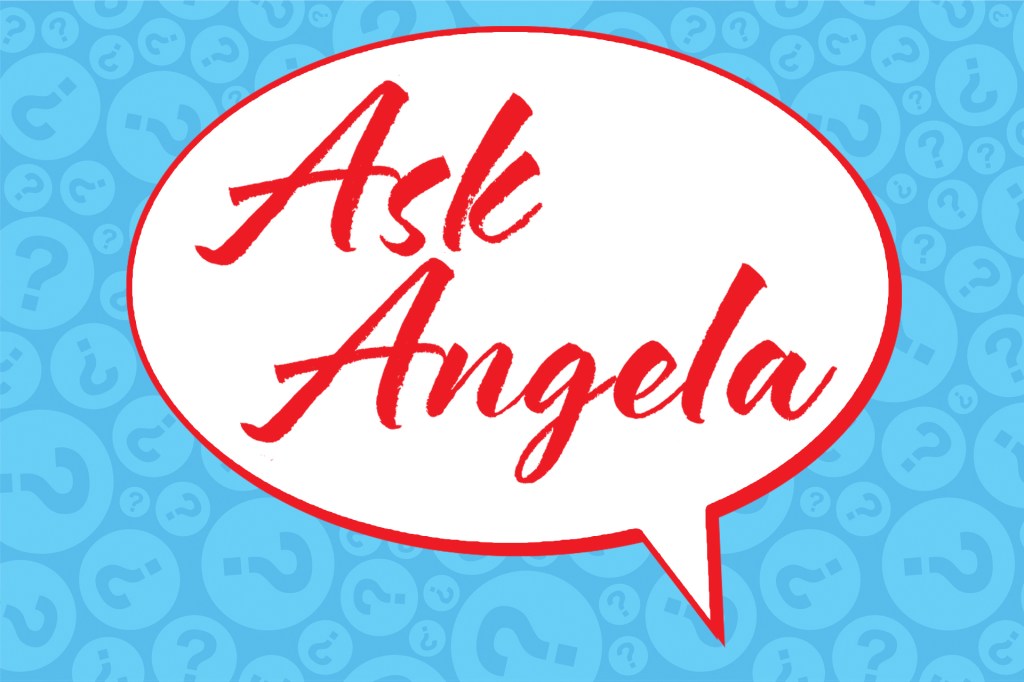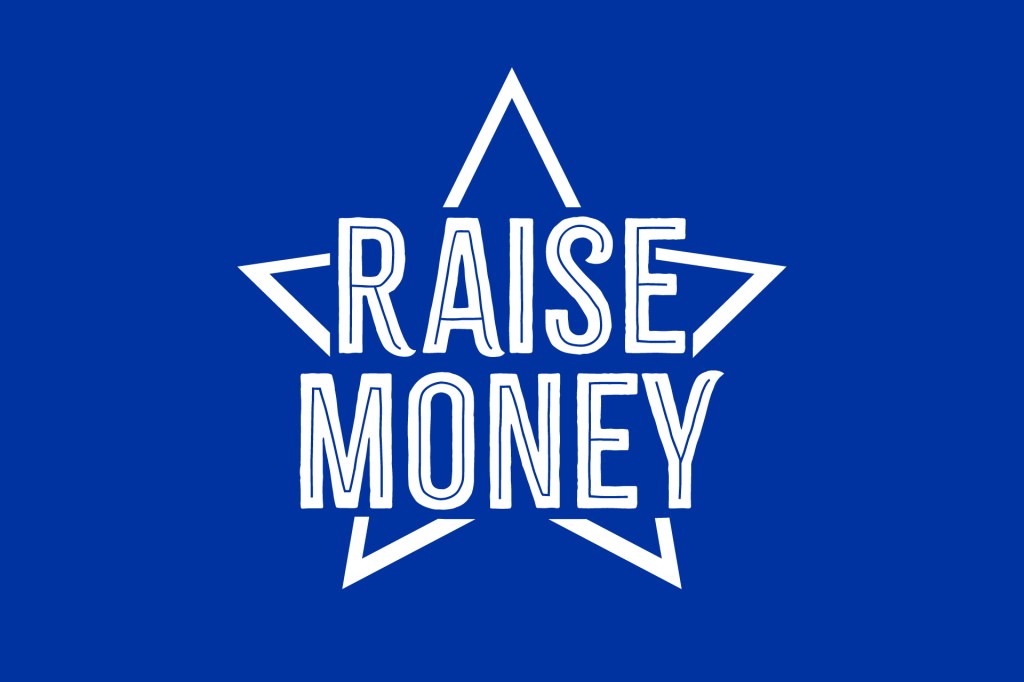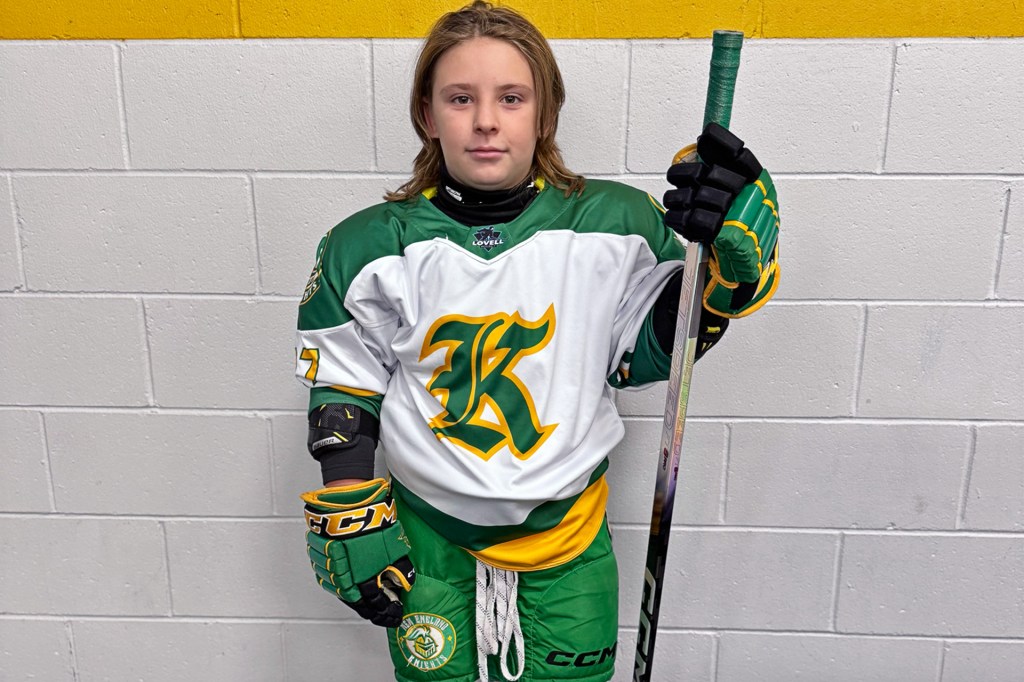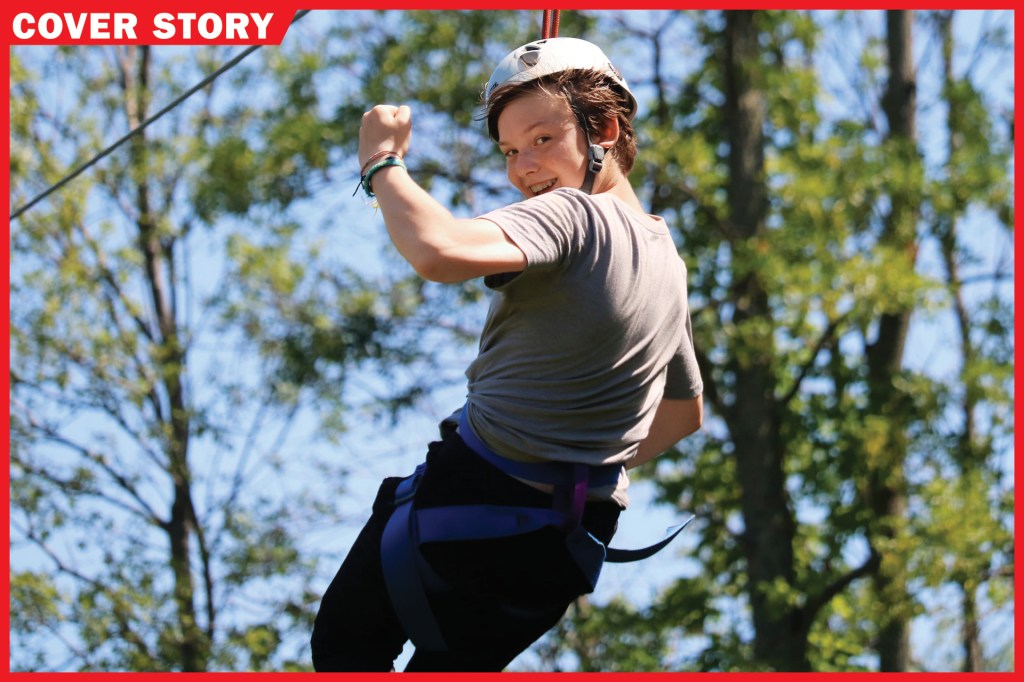
Alaysia Thomas is 16. She went to sleepaway camp for the first time last summer. At camp, she rode horses. She also went canoeing. But her favorite thing was talking with other campers. “I made great friendships,” she told TIME for Kids.
The campers had something in common. They all have a parent in the military. Some, such as Alaysia and her younger sister, Alivia, have two.
The camp the girls went to is in Virginia. It’s one of several Operation Purple camps across the country run by the National Military Family Association (NMFA). These free, weeklong camps are for kids ages 7 to 17.
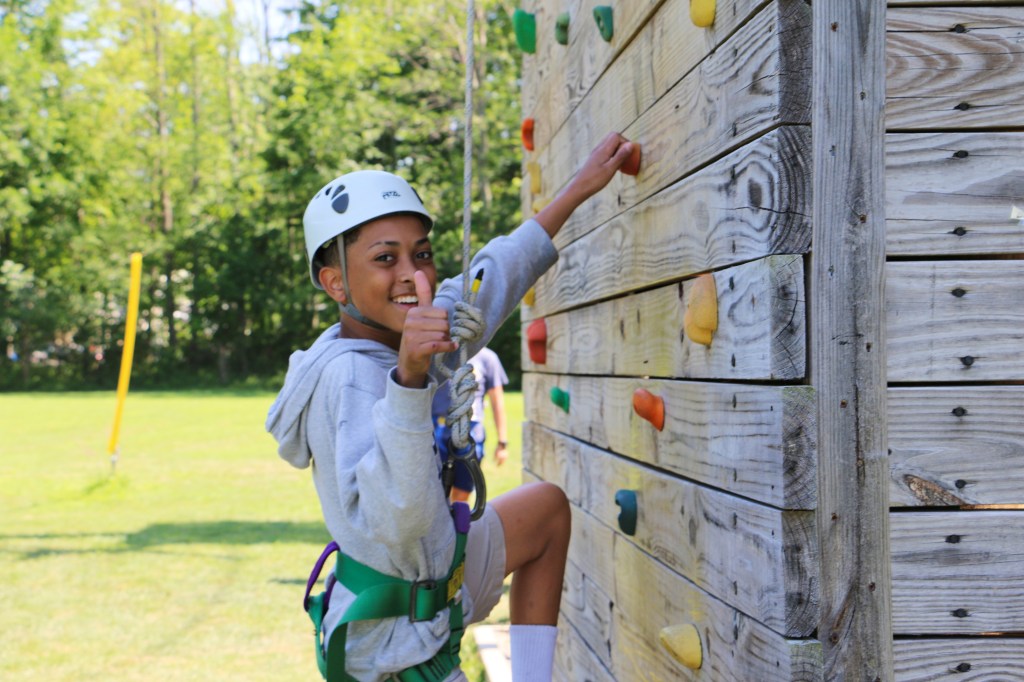
GOING UP? Operation Purple campers take on challenges such as climbing to test their skills and build confidence.
COURTESY THE NATIONAL MILITARY FAMILY ASSOCIATIONGoing to an Operation Purple camp can be a military kid’s first time around other military kids. “It’s a chance for them to come together,” Hannah Pike says. She is an NMFA programs director.
Stephanie Thomas is grateful for Operation Purple. She is Alaysia and Alivia’s mother. She is also in the United States Army. “We sacrifice
sacrifice
 DAN KENYON/GETTY IMAGES
to give up something for a belief or purpose
(verb)
Stanley had to sacrifice a trip to the beach in order to finish his book report.
a lot for our country,” she says. “That little bit given back, to take care of our kids—it’s appreciated.”
DAN KENYON/GETTY IMAGES
to give up something for a belief or purpose
(verb)
Stanley had to sacrifice a trip to the beach in order to finish his book report.
a lot for our country,” she says. “That little bit given back, to take care of our kids—it’s appreciated.”
At Your Service
More than 62,000 kids have gone to an Operation Purple camp since 2004. According to Pike, some sites get more than 500 applications for just 150 spots. Priority
priority
 WUNDERVISUALS/GETTY IMAGES
the state of coming before another in time or importance
(noun)
When boarding an airplane, priority is given to people who are disabled or elderly.
is given to kids with a parent who has recently been or will soon be deployed
deploy
WUNDERVISUALS/GETTY IMAGES
the state of coming before another in time or importance
(noun)
When boarding an airplane, priority is given to people who are disabled or elderly.
is given to kids with a parent who has recently been or will soon be deployed
deploy
 VIDEODET/GETTY IMAGES
to send a member of the military where he or she is needed
(verb)
Soon after graduating from the military academy, Mariah was deployed.
.
Spots are also held for kids whose parents have been hurt.
VIDEODET/GETTY IMAGES
to send a member of the military where he or she is needed
(verb)
Soon after graduating from the military academy, Mariah was deployed.
.
Spots are also held for kids whose parents have been hurt.
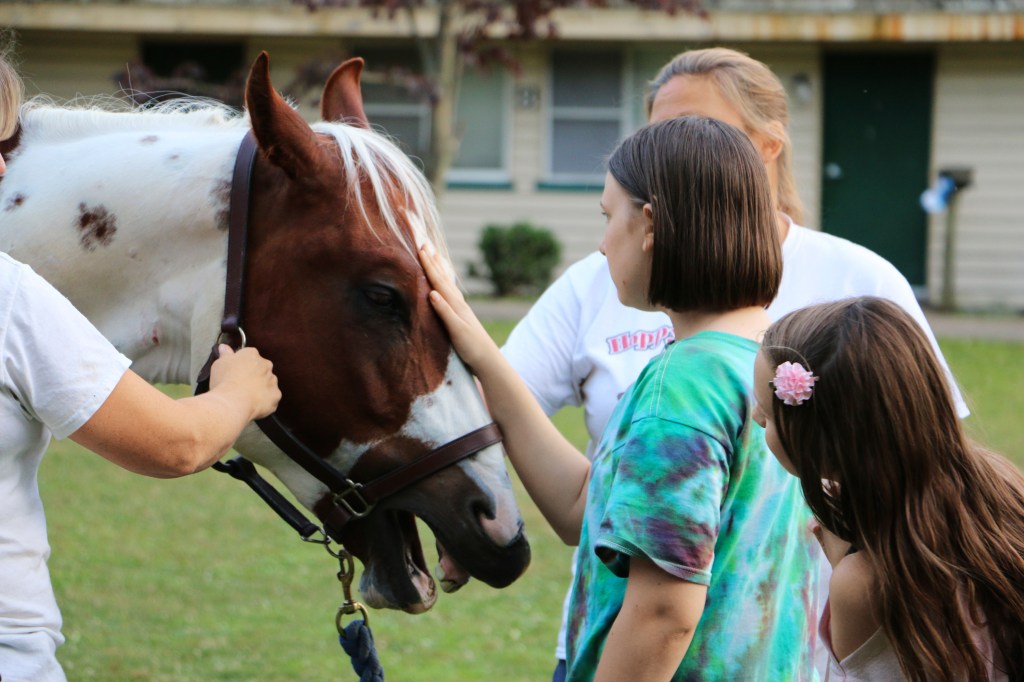
HI, HORSE Horses may be part of an Operation Purple experience.
COURTESY THE NATIONAL MILITARY FAMILY ASSOCIATIONPart of the program’s appeal is its price tag. “Military families often struggle with finances
finances
 MOMO PRODUCTIONS/GETTY IMAGES
the amount of money a person has and how it is used
(noun)
Wanda began saving money to help improve her finances.
,” Amy Bushatz says. “It doesn’t hurt that the camp is free.” Her son, David, is 9. He went to camp in Alaska in 2017.
MOMO PRODUCTIONS/GETTY IMAGES
the amount of money a person has and how it is used
(noun)
Wanda began saving money to help improve her finances.
,” Amy Bushatz says. “It doesn’t hurt that the camp is free.” Her son, David, is 9. He went to camp in Alaska in 2017.
So who pays? “We have generous donors
donor
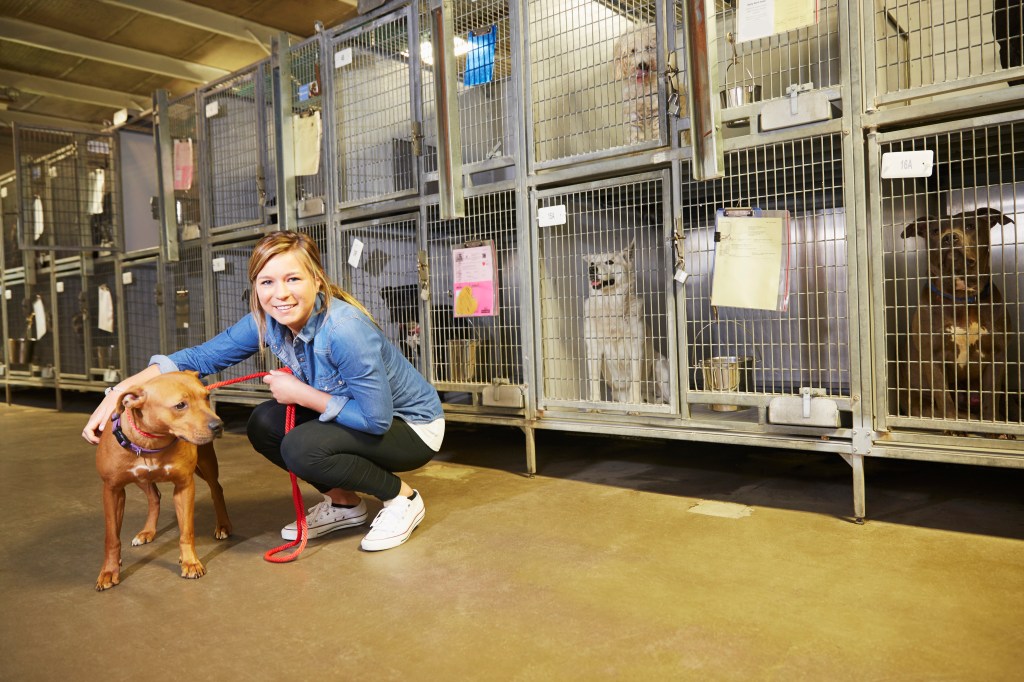 CAMILLE TOKERUD/GETTY IMAGES
someone who gives money or other items to help a person or organization
(noun)
The animal shelter gets money from donors in our community.
,” Pike says. One is the Wounded Warrior Project. It announced a $750,000 grant to Operation Purple last month.
CAMILLE TOKERUD/GETTY IMAGES
someone who gives money or other items to help a person or organization
(noun)
The animal shelter gets money from donors in our community.
,” Pike says. One is the Wounded Warrior Project. It announced a $750,000 grant to Operation Purple last month.
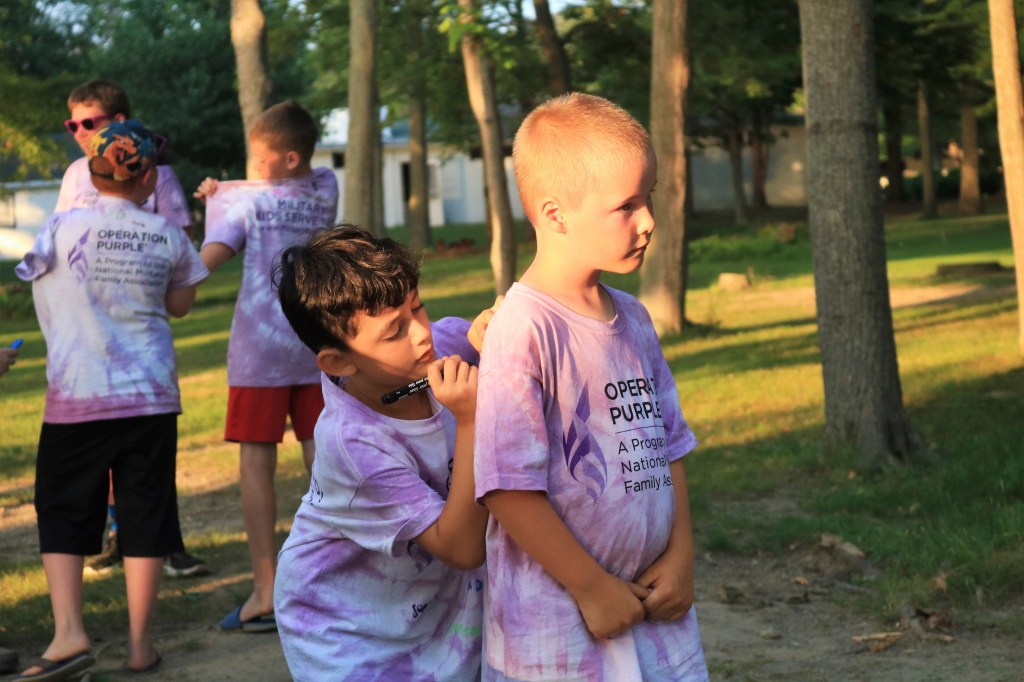
DON'T FORGET TO WRITE Children sign messages on each other’s T-shirts on the last day of the weeklong camp.
COURTESY THE NATIONAL MILITARY FAMILY ASSOCIATIONStrength and Honor
Military children face unique challenges. According to the American Academy of Pediatrics, families in the military might move every two to four years. That means kids can switch schools nine times by age 18.
At an Operation Purple camp, kids bond with new friends who are facing the same challenges. Also, Pike says each camp has two counselors trained to help military kids. They support campers in need.
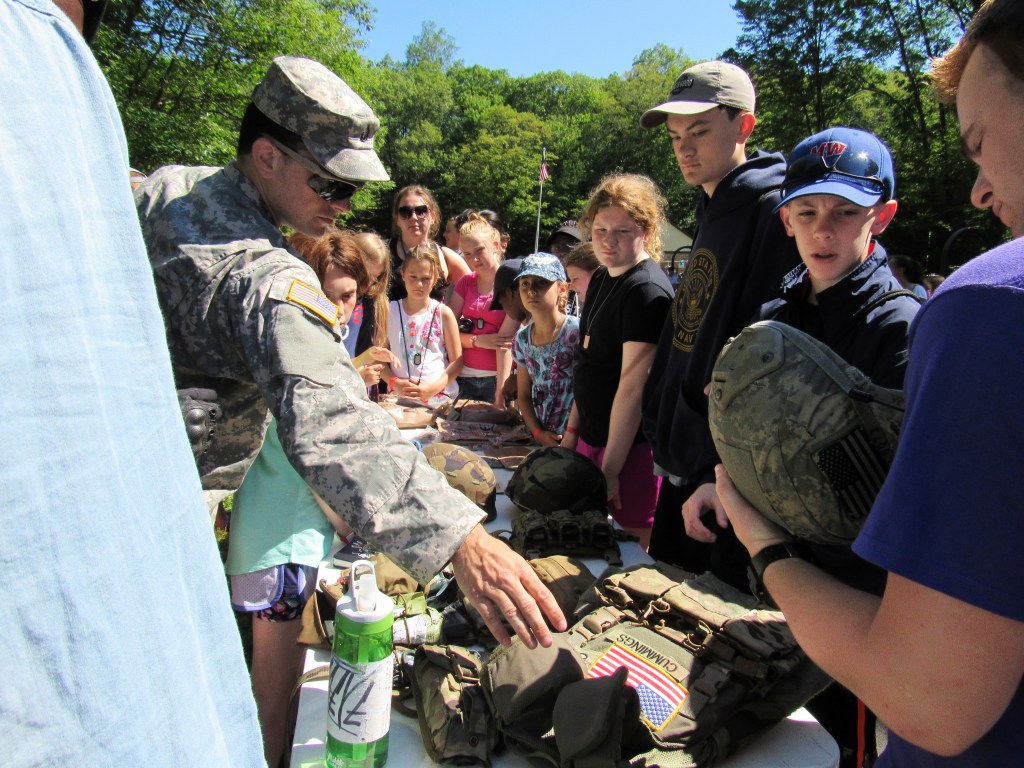
MILITARY DAY The National Guard share military items. They might even bring tanks or helicopters.
COURTESY THE NATIONAL MILITARY FAMILY ASSOCIATIONOn a military-themed day, campers make a Wall of Honor. Alaysia Thomas added a poster about her family to her camp’s display. Is she proud of her two military parents? “Very,” she says.
Sidebar: Bring a Buddy
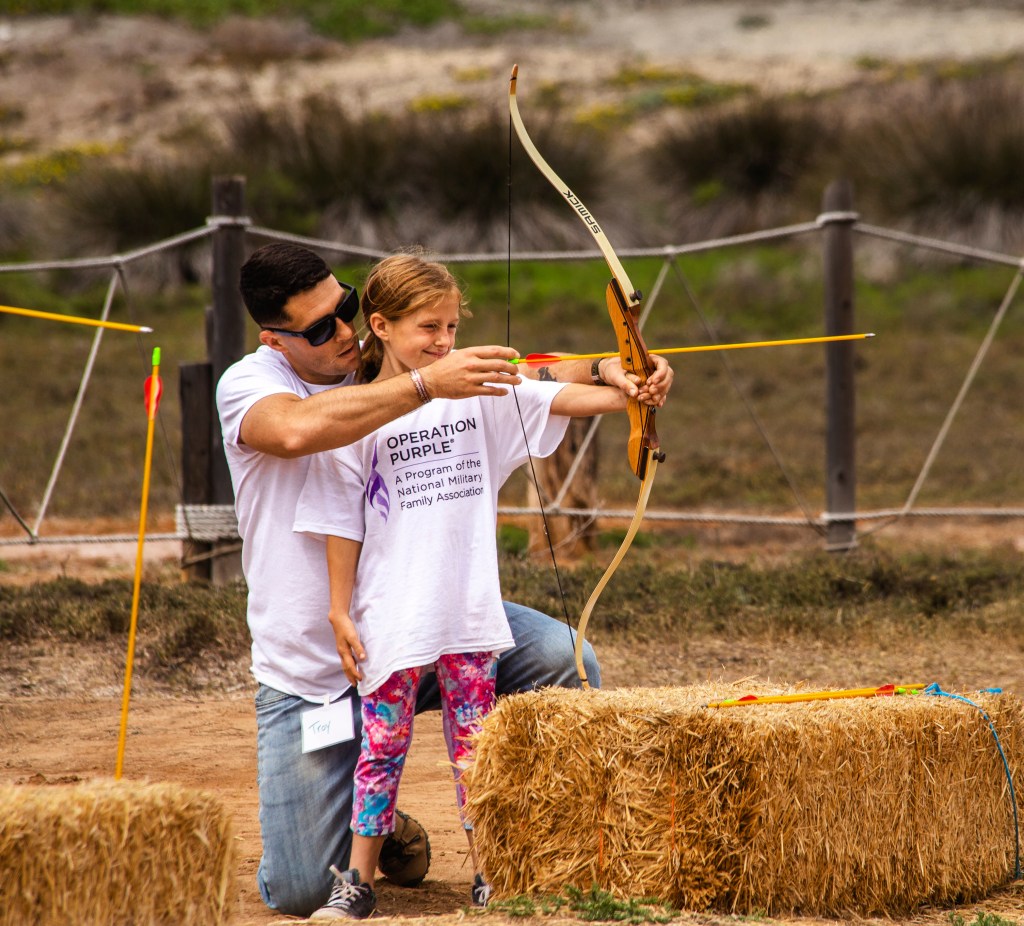
Nearly 2 million kids have a parent in the U.S. military, according to the U.S. Department of Defense. Operation Purple wants to serve as many of them as possible.
That’s where Buddy Camp comes in. This Operation Purple program is for military children who are not ready to go to sleepaway camp on their own. At a Buddy Camp, kids ages 5 to 8 bring along a “buddy.” This can be a parent, grandparent, or caretaker. Hannah Pike says that Buddy Camp is “a really special bonding experience.”
Stop & Think! What sources does the author refer to in the article? Sources include people, organizations, and publications. How do journalists use sources to report a news story?





